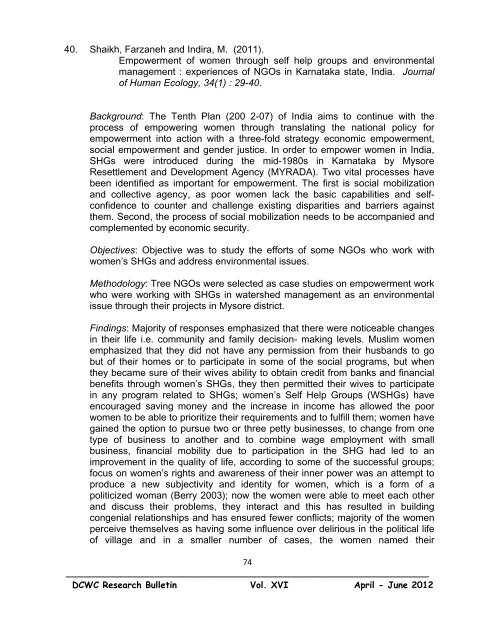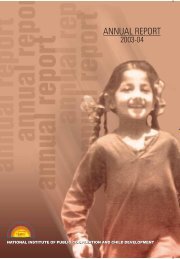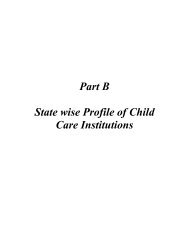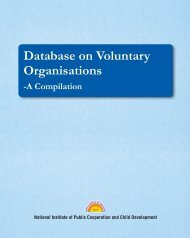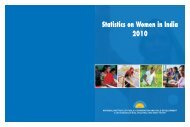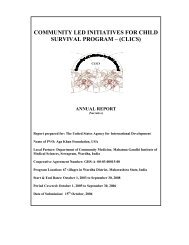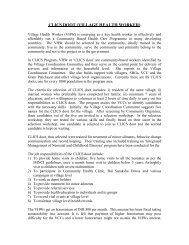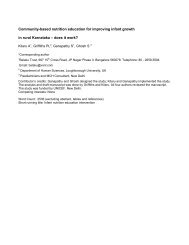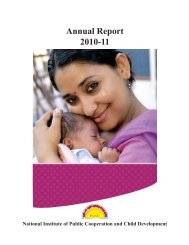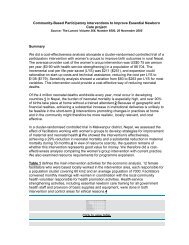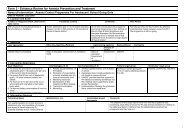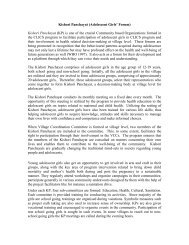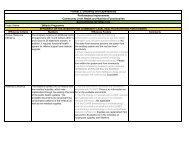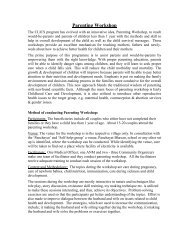Vol. XVI Issue 2 April - June 2012 2012 Documentation ... - Nipccd
Vol. XVI Issue 2 April - June 2012 2012 Documentation ... - Nipccd
Vol. XVI Issue 2 April - June 2012 2012 Documentation ... - Nipccd
You also want an ePaper? Increase the reach of your titles
YUMPU automatically turns print PDFs into web optimized ePapers that Google loves.
40. Shaikh, Farzaneh and Indira, M. (2011).<br />
Empowerment of women through self help groups and environmental<br />
management : experiences of NGOs in Karnataka state, India. Journal<br />
of Human Ecology, 34(1) : 29-40.<br />
Background: The Tenth Plan (200 2-07) of India aims to continue with the<br />
process of empowering women through translating the national policy for<br />
empowerment into action with a three-fold strategy economic empowerment,<br />
social empowerment and gender justice. In order to empower women in India,<br />
SHGs were introduced during the mid-1980s in Karnataka by Mysore<br />
Resettlement and Development Agency (MYRADA). Two vital processes have<br />
been identified as important for empowerment. The first is social mobilization<br />
and collective agency, as poor women lack the basic capabilities and selfconfidence<br />
to counter and challenge existing disparities and barriers against<br />
them. Second, the process of social mobilization needs to be accompanied and<br />
complemented by economic security.<br />
Objectives: Objective was to study the efforts of some NGOs who work with<br />
women’s SHGs and address environmental issues.<br />
Methodology: Tree NGOs were selected as case studies on empowerment work<br />
who were working with SHGs in watershed management as an environmental<br />
issue through their projects in Mysore district.<br />
Findings: Majority of responses emphasized that there were noticeable changes<br />
in their life i.e. community and family decision- making levels. Muslim women<br />
emphasized that they did not have any permission from their husbands to go<br />
but of their homes or to participate in some of the social programs, but when<br />
they became sure of their wives ability to obtain credit from banks and financial<br />
benefits through women’s SHGs, they then permitted their wives to participate<br />
in any program related to SHGs; women’s Self Help Groups (WSHGs) have<br />
encouraged saving money and the increase in income has allowed the poor<br />
women to be able to prioritize their requirements and to fulfill them; women have<br />
gained the option to pursue two or three petty businesses, to change from one<br />
type of business to another and to combine wage employment with small<br />
business, financial mobility due to participation in the SHG had led to an<br />
improvement in the quality of life, according to some of the successful groups;<br />
focus on women’s rights and awareness of their inner power was an attempt to<br />
produce a new subjectivity and identity for women, which is a form of a<br />
politicized woman (Berry 2003); now the women were able to meet each other<br />
and discuss their problems, they interact and this has resulted in building<br />
congenial relationships and has ensured fewer conflicts; majority of the women<br />
perceive themselves as having some influence over delirious in the political life<br />
of village and in a smaller number of cases, the women named their<br />
74<br />
__________________________________________________________________________________<br />
DCWC Research Bulletin <strong>Vol</strong>. <strong>XVI</strong> <strong>April</strong> - <strong>June</strong> <strong>2012</strong>


